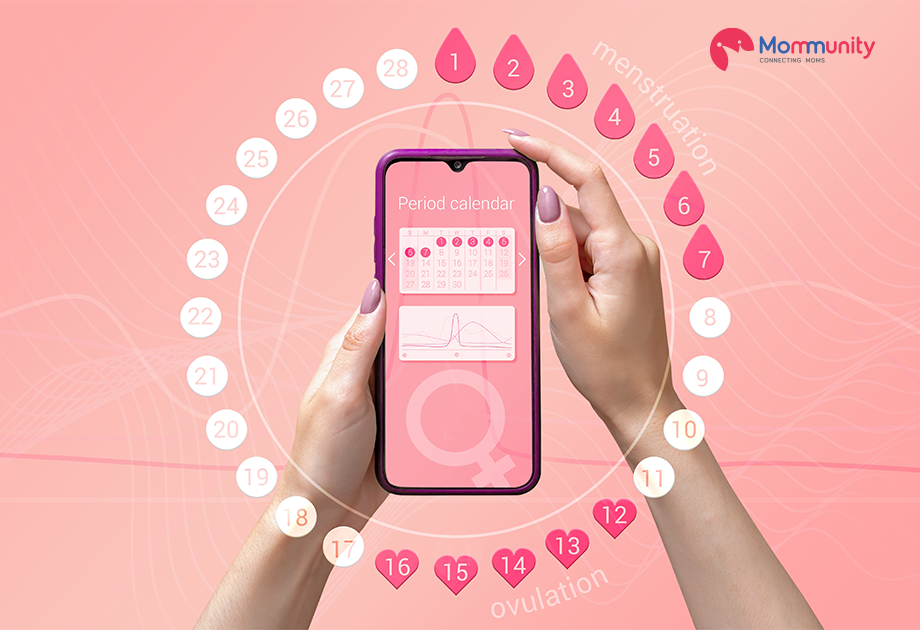The Hazards of a Late Sleeping Habit: Understanding the Effects of Poor Sleep on Your Health and Common Sleep Disorders Including Sleep Apnea and Cardiometabolic Diseases Are you one of those people who hit “snooze” multiple times before finally getting out of bed?
Well, it turns out that this habit could be harming your health. Studies have shown that adolescents, in particular, are at risk of developing sleep disorders due to their changing circadian rhythms and increasing responsibilities.
- The Effects of Poor Sleep on Your Health
- Common Sleep Disorders including Sleep Apnea and Cardiometabolic Diseases
- Sleep Hygiene
- Sleep Disorder Treatment & Management Options
But why is it important to get a good night’s sleep? It’s simple Sleep is necessary for both physical and mental well-being. Late Sleeping Habit deprivation can result in a range of health issues, including obesity, heart disease, and diabetes. And that’s not all – insufficient sleep has also been linked to an increased risk of depression and anxiety.
So what exactly does your circadian rhythm have to do with sleep? Your body has a natural internal clock that tells you when it’s time to sleep and wake up. Late Sleeping Habit is Badly Affecting your health. This clock is influenced by factors such as light exposure and hormone secretion. Disruptions to your natural circadian rhythm of Late Sleeping Habit, such as irregular sleeping schedules or night shift work, can lead to sleep problems and other health issues.
Understand the Importance of Sleep
Now that you understand the importance of sleep and its link to your body’s natural clock, it’s time to start prioritizing your sleep hygiene. Creating a sleep-friendly environment, avoiding stimulants and alcohol before bed, and establishing a consistent bedtime routine are all effective ways to promote healthy sleep habits.
Remember that getting enough sleep is one of the most important things you can do for your health. So, if you’re guilty of burning the midnight oil, it’s time to make a change and prioritize your rest.
Impact of Insufficient Sleep on Your Health
Do you find yourself dragging throughout the day, barely able to keep your eyes open? Perhaps you can’t shake off that headache that’s been lingering for days, or you feel more emotional than usual. Lack of sleep could be the culprit causing these side effects.
Late Sleeping Habit can lead to both physical and mental health issues. The effects of sleep deprivation on your body can be harmful, creating a domino effect that impairs your daily functions. Such effects can lead to increased levels of depression, anxiety, and stress. Getting ample rest can improve your physical and emotional health, leaving you energized and well-rested.
Let’s take a closer look at the effects of sleep on physical health. Sleep deprivation can lead to high blood pressure, heart disease, and stroke. It can also disrupt your metabolism, making weight management more challenging. Getting plenty of rest can help regulate your metabolism, reducing the risk of type 2 diabetes.
Poor Sleep Patterns and Compromised Mental Health.
Poor sleep patterns can also lead to compromised mental health. Aside from feeling tired and irritable, lack of sleep can impair your cognitive abilities. This means you’ll struggle to focus on and retain important information. It can also affect your mood, making you feel more anxious or depressed than usual.
While the effects of sleep deprivation may differ from person to person, we all experience similar symptoms when we don’t get enough rest. These symptoms often include difficulty concentrating, mood swings, and weight gain. Many people also struggle with sleep disorders, such as insomnia, sleep apnea, and narcolepsy.
The Signs of Sleep Disorder
Identifying the signs of sleep disorder is crucial. Insomnia is believed to be the most common sleep disorder, affecting one in three individuals. Symptoms include difficulty falling asleep, difficulty staying asleep, and waking up too early. Sleep apnea is also common, affecting roughly 22 million individuals in the United States alone.
Symptoms of sleep apnea include snoring, gasping in your sleep, and waking up tired. Narcolepsy is a less common sleep disorder, affecting approximately 200,000 Americans. It can cause sleep attacks that are often uncontrollable and sudden.
If you’re experiencing signs of sleep disorder, you’ll want to address the issue before it worsens. Simple changes to your lifestyle can greatly improve the amount and quality of sleep you receive. Improving your sleep hygiene can also help, such as setting up a relaxing bedtime routine and sleeping in a comfortable environment. In some cases, medications may be needed to manage sleep disorders.
Sleep is essential for your well-being. It can affect your physical and emotional health, as well as a variety of other aspects of your daily life. Identifying the signs of sleep disorder and seeking treatment is crucial. By making simple changes to your lifestyle and routine, you can improve your sleep patterns and gain the rest you need to lead a healthy, happy life.
Common Sleep Disorders including Sleep Apnea and Cardiometabolic Diseases
Introduction to Sleep Disorders:
Sleep is essential for our body, and lack of it can lead to several problems. Do you often feel tired and grumpy, and are you unable to focus? Not getting enough sleep could be the reason for this. Insufficient sleep can have severe consequences on our health, leading to several health issues like weight gain, high blood pressure, and an increased risk of diabetes. In this section, we will discuss common sleep disorders, including sleep apnea, insomnia, and narcolepsy.
Sleep Apnea:
Sleep apnea is a condition that impairs our breathing while we sleep. It is characterized by interrupted breathing or shallow breaths. Snoring and feeling tired even after a full night’s sleep are symptoms of sleep apnea. It is more common in overweight people and those with genetic predispositions. In extreme cases, it can lead to heart problems and stroke. Hence, it is crucial to diagnose and treat sleep apnea at the earliest.
Insomnia:
Insomnia is a sleep disorder that can be caused by stress, depression, or anxiety. It affects our ability to sleep or even stay asleep throughout the night. People with insomnia often wake up feeling tired or are unable to fall asleep in the first place. This condition can affect our mental health, leading to lower productivity, depression, and even increasing the risk of accidents. Hence, it is crucial to find ways to manage and treat insomnia.
Narcolepsy:
Late Sleeping Habit is Badly Affecting your health, Narcolepsy is a rare sleep disorder that causes excessive sleepiness during the day. It is a neurological condition that affects our brain’s ability to regulate sleep-wake cycles. People with narcolepsy often report feeling suddenly sleepy throughout the day, even during work or other activities. It can lead to accidents and can be distressing. Unfortunately, there is no cure for narcolepsy. However, medication and lifestyle changes can help alleviate the symptoms.
In this Section, We have Discussed Common Sleep Disorders, including Sleep apnea, Insomnia, and Narcolepsy
These disorders affect our health and can lead to severe consequences if not treated on time. It is essential to be aware of these conditions’ symptoms and seek medical help if suspected. A good night’s sleep is crucial for our overall health and well-being, and we must take all necessary steps to ensure we get enough sleep.
Sleep apnea, Insomnia, and Narcolepsy
We all know the absolute bliss of a good night’s sleep but achieving it isn’t always as easy as it sounds. Poor sleep hygiene, coupled with stress and exhaustion, can severely impact your ability to rest, leading to sleep disorders such as insomnia, sleep apnea, and narcolepsy, among others. Fortunately, there are ways to improve your sleep hygiene, and in turn, your quality of life. Here’s what you need to know:
Maintaining a regular sleep schedule is essential to establishing good sleep hygiene. A regular sleep schedule means sticking to the same bedtime and wake-up time even on weekends, and avoiding naps during the day. This ensures that your circadian rhythm remains intact, and your body knows when it’s time to rest. Besides, sleeping for the same duration each night helps keep your sleep quality consistent.
Avoiding stimulants such as caffeine and alcohol is crucial to a good night’s rest. While coffee is a great pick-me-up in the morning, having it in the afternoon or evening can stimulate your brain, making it harder for you to fall asleep. Alcohol, on the other hand, may induce drowsiness, but it is also known to fragment sleep, leading to restlessness and discomfort.
Creating a sleep-friendly environment is essential to achieving high sleep quality. A quiet, dark, and cool environment goes a long way in inducing and maintaining sleep. Keep your bedroom free of electronics, such as laptops, phones, and tablets, and use blackout curtains or a sleep mask if your room is bright. You can also try using earplugs to cancel out background noise, and a comfortable mattress and bedding to ensure a comfortable and relaxing sleep.
Establishing a bedtime routine is one of the best ways of preparing your mind and body for sleep. A routine could include activities such as taking a warm bath, reading a book, or meditating. This routine helps signal to your body that it is time to rest and helps to relax the mind.
Getting enough sleep is essential for a healthy and productive life, and improving your sleep hygiene is the first step towards achieving this. By maintaining a regular sleep schedule, avoiding stimulants and alcohol, creating a sleep-friendly environment, and establishing a bedtime routine, you can significantly improve your sleep quality and wake up feeling refreshed and energized.
Treatment and Management Options for Sleep Disorders
If you are facing significant sleep disorders or insomnia issues, seeking medical help is a wise decision. However, before the right treatment plan can be identified, it is important to correctly diagnose the underlying issue.
Sleep Disorder Diagnosis:
Visit a sleep specialist who can conduct a polysomnogram or a sleep study to diagnose your exact condition. In this test, your night’s sleep cycle will be recorded to understand the underlying cause of the sleep disorder. With proper diagnosis, the right treatment plan can be identified to control the underlying sleep disorder.
Lifestyle Changes:
For mild sleep disorders, some lifestyle changes can provide significant relief. Regular exercise, a proper diet, and a consistent sleep schedule can improve the sleep cycle. Also, make sure you are avoiding caffeine and alcohol consumption, especially late at night. Creating a comfortable sleeping environment with the right room temperature and comfortable bed can also improve sleep quality.
Medical and Surgical Treatment:
Medical treatment options such as hypnotics, benzodiazepines, and melatonin receptor agonists can be used as short-term solutions. However, these medications come with the downsides of dependence, abuse, and addiction. If sleep apnea is the issue, continuous positive airway pressure (CPAP) therapy can be used to keep the air passages open during sleep.
If other treatments fail, surgical options like Uvulopalatopharyngoplasty (UPPP) or thermal ablation can be used to create a more open airway. However, surgery should only be considered as a last resort.
Alternative Treatments:
Alternative treatments such as acupuncture, meditation, and hypnosis can also be used to treat sleep disorders. While these treatments can provide a calming effect, they are less well-researched than medical and surgical treatments. Therefore, they should be considered complementary to conventional treatments.
Getting sufficient sleep is crucial for a healthy lifestyle and maintaining productivity. If you are experiencing any sleep disorders, consult with a sleep specialist and work on creating a sleep environment that helps in preventing sleep disorders.
Conclusion
Remember, a good night’s sleep is essential for optimal health and well-being. Insufficient sleep can lead to negative effects on both physical and mental health. Common sleep disorders such as sleep apnea and cardiometabolic diseases should not be ignored and treated as soon as possible. Late Sleeping Habit is Badly Affecting Your health
Maintaining good sleep hygiene by establishing a regular sleep schedule, avoiding stimulants, and creating a sleep-friendly environment can greatly improve the quality of your sleep. And in the case of sleep disorders, consult with a medical professional for proper diagnosis and treatment. Make sleep a priority and take action to improve your sleep habits.
Remember, a good night’s sleep is essential for optimal health and well-being. Insufficient sleep can lead to negative effects on both physical and mental health. Common sleep disorders such as sleep apnea and cardiometabolic diseases should not be ignored and treated as soon as possible.
Maintaining good sleep hygiene by establishing a regular sleep schedule, avoiding stimulants, and creating a sleep-friendly environment can greatly improve the quality of your sleep. It is important to prioritize sleep and make conscious efforts to develop healthy sleep habits. Taking action to improve your sleep habits can have a profound impact on your overall well-being.
In addition to following a consistent sleep schedule and creating a peaceful sleep environment, incorporating relaxation techniques into your bedtime routine can further enhance the quality of your sleep. Engaging in activities such as reading a book, practicing deep breathing exercises, or taking a warm bath before bed can help relax your mind and prepare it for a restful sleep.
Furthermore, it is crucial to limit the use of electronic devices before bedtime as the blue light emitted by screens can disrupt the body’s natural sleep-wake cycle. Instead, consider engaging in calming activities such as listening to soothing music or practicing mindfulness meditation to promote relaxation and facilitate a good night’s sleep.
If you find yourself struggling with sleep, it is imperative to seek professional help. Consulting with a medical professional who specializes in sleep disorders can provide you with a proper diagnosis and recommend suitable treatment options. They may suggest lifestyle modifications, prescribe medications, or suggest therapy sessions to address sleep-related issues effectively.
conscious, Late Sleeping Habit is Badly Affecting your health, efforts to improve your sleep habits and seeking appropriate medical assistance when needed, you are taking proactive steps toward achieving better physical and mental health. Your body and mind will thank you for the care and attention you give to your sleep. So, go ahead and make sleep a priority in your life!




